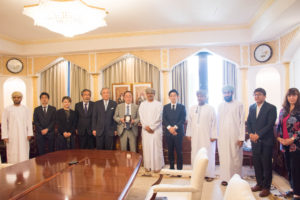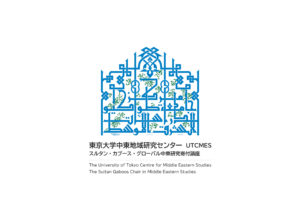From the EU to Opening towards Omnilateralism (25th Apr. 2023)
The University of Tokyo Centre for Middle Eastern Studies (UTCMES) is co-hosting following seminar with the Center for German and European Studies (DESK).
We sincerely look forward to your participation.
| Date and Time |
3:10-4:40 PM, 25th April 2023 |
| Speaker |
Dr. Wolfgang Pape |
| Abstract |
The nation in general worldwide has lost power upstream to globalisation and downstream to more direct democratic engagement (subsidiarity). Its nationalist aberration of (often militarily) fixed borders and illusion of absolute sovereignty can hardly halt migration, money or data flows, in particular if the market makes them profitable. Controversial information and data dependence on (a)social media now even impact higher level elections. Presidential election results worldwide (from Trump to Putin and Erdogan to Duterte) might look as being close to direct national democracy, but they often manifest the dangers of unfiltered crowdsourcing for democratic decisions. To meet these challenges, there are incipient regional solutions, like in the EU with its institution of an increasingly influential parliament, consultative bodies for civil society as well as provinces and a historically first supranational executive. The regionalisation effect is being strengthened worldwide by the current ‘slowbalisation’ of global integration; and many regional groupings from ASEAN to AU and Mercosur to NAFTA (USMCA) have key roles to play towards wider governance. At the global level, especially against the pandemic and for the climate, we must reach beyond only western-inspired and narrowly nation-based multi-lateralism of the outdated Westphalian System that is typified in the United Nations Organisation. Rather, Omnibus (for and by all) is the new vehicle: to widen the input of non-Western experiences, and to include non-state stakeholders in democratic governance that counts not only the quantity of unequal national votes but also includes the quality of deliberating voices. NGOs — now more trusted than national officials — increasingly enhance global commitments not only against climate change but also against warmongers. However, parochial politicians still claim national ‘sovereignty’ against direly needed global solutions and even provoke destructive conflicts over borders. The process of COP already signals the trend towards omnilateralism with Eastern understanding of cycles for the environment and ‘holism’ beyond the rather Western linear thinking and divisive individualism. In conclusion, direct democracy may suit the directly informed local level. The higher the stage of democratic governance ranging from the village via the province and the nation to the region and in particular to the global level, the more expertise of civil society is needed for the common good of all East and West as well as North and South, i. e. omnilaterally. |
| Venue |
Collaboration Room 1, Bldg. 18, the University of Tokyo, Komaba |
| 言語/Language | 英語/English |
| Hosted by |
The Center for German and European Studies (DESK) |
| Contact |
The University of Tokyo Centre for Middle Eastern Studies (UTCMES) 03-5465-7724/info@utcmes.c.u-tokyo.ac.jp |


